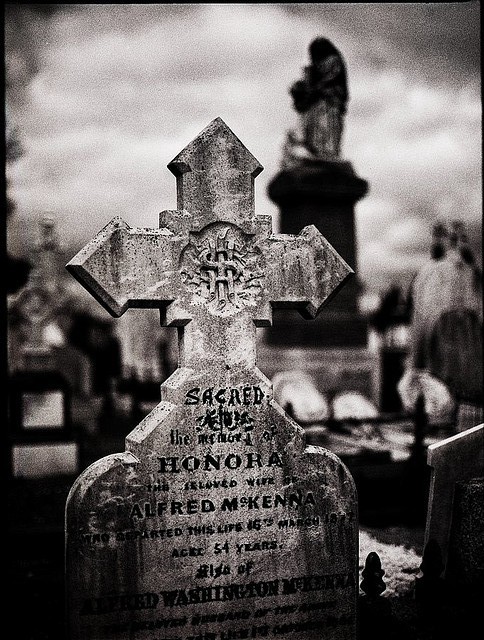
“First I was dying to finish school and start college. And then I was dying to finish college and start
working. And then I was dying to marry and have children. And then I was dying for my children to
be old enough for school so I could return to work. And then I was dying to retire. And now I am
dying… And suddenly I realise I forgot to live.” ~ Anonymous
As a palliative care nurse I have heard this story many times.
From people who have worked hard their whole lives to invest in their future and are finally ready to reap the benefits of their sacrifices—until an unexpected terminal illness quickly changes their plans. Or the tragic cases of a young parent whose life is cut short. Or the infrequent, but devastating situation when a young person is diagnosed with a progressive, life-limiting illness. What is common to most of the people I have cared for in the six years that I have worked in palliative care is that, regardless of age, nearly all are caught off guard by the news of a shortened life-span.
Seeing the sadness and the grief, and baring witness to the life reflection that so often accompanies a terminal diagnosis, it is hard not to turn around and announce to everyone, “Live up each day! Don’t wait to live a life you love!”
Although I have never been one to sacrifice my present happiness for future planning, living in the present moment has become even more important to me since starting in the field of palliative care. Yes there is sadness and grief, but I have also seen the way a terminal diagnosis can give people the opportunity to focus on what is truly important to them and forget the rest. To stop trying to meet perceived expectations, stop investing energy into people and things that don’t positively serve them, and finally have the permission to listen to and act on what is important to them.
Fear of judgment and failure suddenly take a back seat or disappear completely, as acceptance, vulnerability, meaning-making and positive relationships become the focus. This phenomenon is often referred to as “spiritual transcendence” in palliative care literature.
In the words of Søren Kierkegaard: “Life can only be understood backwards; but it must be lived forwards.”
The privilege of being able to learn from the wisdom of people at the end of their lives as they reflect on what is truly important got me thinking, “Why should we have to wait until the end to focus on what we love and what truly brings meaning into our lives?”
The more I witnessed this spiritual transcendence, the more convinced I became that living as if you are dying is how I want to live everyday. I don’t want to look back and think “if only.” If only I wasn’t so concerned about what others thought I could have actually followed the path true to my heart. If only I didn’t let media and societal messages and others opinions guide how I should live my life. If only I took more risks and more chances. If only I allowed myself to be vulnerable more often and truly seen.
I also don’t want look back thinking “I wish. I wish I traveled more, I wish I expressed love and gratitude more, I wish I spent more time pursuing my passions.
However, living only for the present without any thought of the future would be unsustainable financially and might risk sacrificing future happiness for immediate gratification.
There has to be a balance.
My solution to this dilemma is a strategy that I would like to share. I call it “The Bucket List Challenge.”
First, make a list of the top 10 things you would like to do if you found out you only had one year to live. Be honest with yourself. Close your eyes and visualise it—you have to be able to imagine the experience to really connect with what is most important to you.
What have you wanted to do but have been too afraid to go for it? Which important person in your life have you been avoiding? What excuses have you been making for yourself? What have you always wanted to pursue?
Don’t hold anything back. Write down whatever comes up.
Next, look at your 10 items and cross off the ones that would negatively affect your life and your happiness should you live longer than a year (which is probably much more likely). Rewrite your remaining achievable bucket list items—the more specific, the easier to achieve.
Include any steps that are needed to accomplish the items on your list.
Make a plan of action and make yourself accountable for completing your bucket list items by either sharing with someone else, taking small steps to set you in the right direction for success, and create a timeline in which to accomplish them.
For the items that I can theoretically tackle right away, I give myself a short timeline, like a month or two. For those that take more steps and planning, I allow for a longer timeframe. However, I find it best to work within a six-month period, if possible.
Then, take action! Make a commitment to let go of what you must to be able to cross off your bucket list items.
We live in a death-denying society—which means we have a tendency to avoid thinking about death. But in doing so we are disadvantaging ourself.
We are acting like we are invincible, which we are not.
The greatest wisdom doesn’t always come from sitting under a tree in contemplation. Sometimes it requires an inescapable wake up call, like a terminal diagnosis to think “I better get this right before its too late.”
So don’t wait to live a life you love—take the Bucket List Challenge today.
Because, “it’s always too early until it’s too late.” ~ Unknown
~
Author: Laura Moore
Images: Jes // Flickr; Dagoaty // Flickr
Editors: Sarah Kolkka; Emily Bartran






Read 13 comments and reply